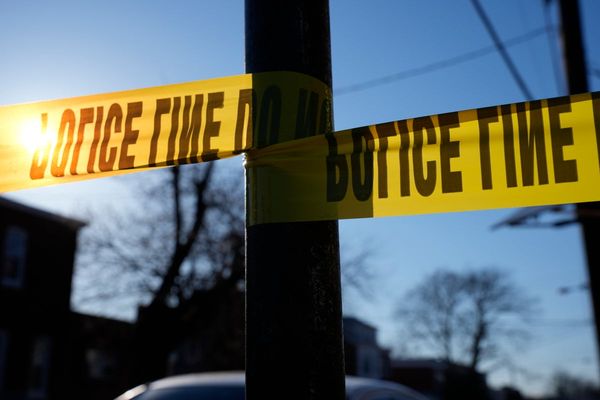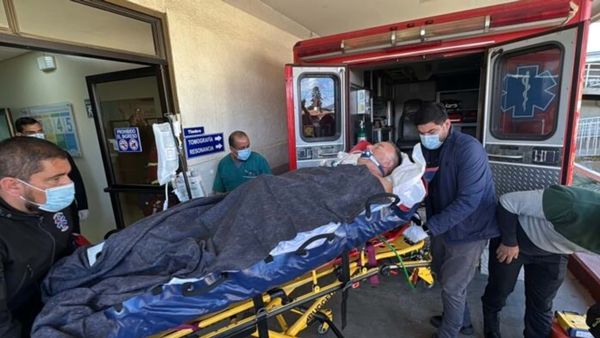
Moscow (AFP) - Memorial, Russia's most respected rights group, has been co-awarded the Nobel Peace Prize less than a year after it was ordered to shut down during a wave of repression against critical voices.
The group, which emerged as a hopeful symbol during Russia's chaotic transition to democracy in the early 1990s, was dissolved late last year, in a sign of tightening authoritarian tendencies under President Vladimir Putin.
No sooner had the award been announced Friday than a Moscow court ordered the seizure of the group's headquarters in the city and for the venue to be "turned into state revenue," the Interfax agency reported.
Memorial established itself as a key pillar in civil society by battling to preserve the memory of victims of Communist repressions and campaigning against rights violations linked to Russia's brutal wars in Chechnya and beyond.
One of the founders of Memorial, Yan Rachinsky, said the prize will breathe "moral strength" into Memorial and all Russian rights defenders in tough times.
Representative Oleg Orlov said that while the prize was important recognition, it was "naive" to think it would offer protection.
"Will this help reduce the pressure on us?I fear that it will not," he said, just hours before the court ruling against the group.
He also denounced the Kremlin's Ukraine offensive as a "constant pain and shame" and said it was a "huge honour" to share the prize with a Ukrainian rights group.
"We are under pressure, but they are under fire.From our army.And they keep working even in these conditions," he said.
The group maintained a massive archive of Soviet-era crimes and questioned official narratives that glossed over horrors committed under Joseph Stalin, but showed concern for contemporary rights abuses too by bringing legal cases against Russian mercenaries in Syria.
Rights activists in December last year asked Putin to intervene in legal moves to shut it down.
But the Russian leader told his human rights council that Memorial had been advocating on behalf of "terrorist and extremist organisations", clearly signalling his backing for its closure.
Nobel 'represents light'
Memorial had been compiling a list of political prisoners who include members of banned religious groups like the Jehovah's Witnesses and Putin's most prominent critic Alexei Navalny, jailed after surviving a near-fatal poisoning attack.
Memorial's closure came amid an unprecedented crackdown in Russia that intensified after Putin sent troops into Ukraine on February 24.
But the enormity of outlawing the country's most prominent rights group stood out even amid the intense clampdown.
"The disappearance of Memorial in Russia will become a symbol of a deep moral fall and the definitive symbolic estrangement of the Russian man from the civilisation of the 21st century," dozens of prominent Russian figures said in an open letter at the time.
"The wounds, which have not healed over the 30 post-Soviet years, are bleeding again."
Ilya Kurbatov, a 23-year-old biochemistry student, said he hoped the Nobel award would change the minds of some Russians -- including his relatives -- who backed the Kremlin's official version that Memorial was working to harm Russia.
"The Nobel represents light and strength," he told AFP.
"Maybe it will help them -- at least a tiny bit -- to look at this whole situation differently."
'Foreign agent'
Memorial was founded in 1989 in the final years of Communist rule under late Soviet leader Mikhail Gorbachev.
Its first chairman was the Nobel Prize-winning Soviet dissident Andrei Sakharov.
The group, regularly cited as a potential Nobel Peace Prize winner, had been in the crosshairs of the Russian authorities for years.
The Memorial Human Rights Centre was put on the government's register of "foreign agents" in 2015.Memorial International was added a year later.
The "foreign agents" label, which has dark Soviet-era connotations, requires individuals or groups to disclose sources of funding and mark all publications -- including social media posts -- with a tag.
Memorial says claims it broke the law or backed terror and extremist groups are "absurd".
The group gained prominence for chronicling the victims of Communist repression -- a painful subject that modern Russia has been reluctant to address -- and investigating executions and kidnappings committed against civilians during Moscow's two wars to subdue Chechen separatists.
Last year, Memorial and several other groups released a report on Moscow's role in Syria and urged Russians to take responsibility for abuses in the war-torn country.
But Memorial's crusading work has come at huge personal cost to those involved.
Natalya Estemirova, one of the group's main employees in Chechnya who gained worldwide renown, was found dead in 2009 with gunshot wounds hours after she was seen being bundled into a car outside her home.
Another Memorial employee, Yury Dmitriyev, who spent decades locating mass graves in the northwestern region of Karelia, was jailed in 2020 on a controversial child sex charge.
Supporters insist the 66-year-old historian was targeted for his work.







